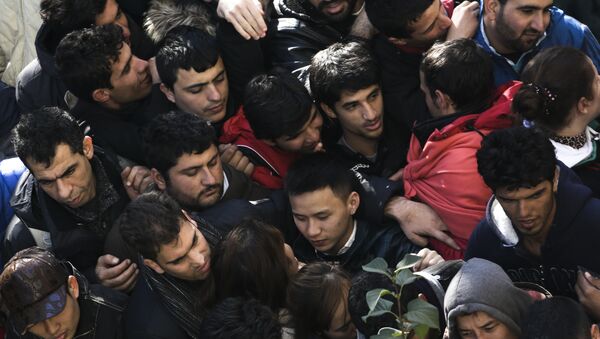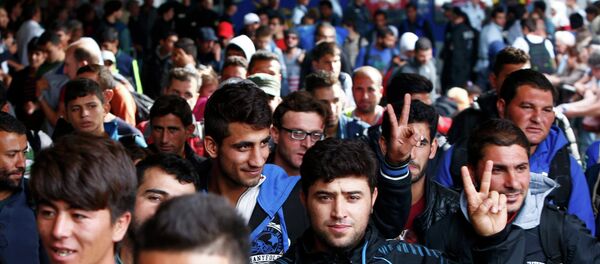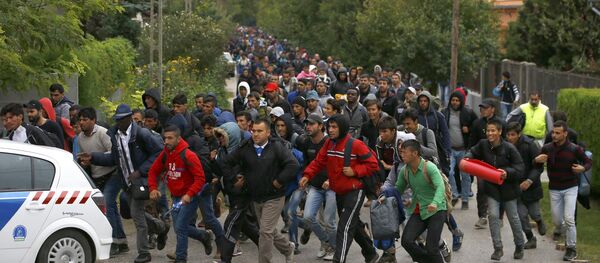LIMA (Sputnik) – Germany is confident that it will be able to solve the current refugee crisis because its economy is in very good shape, a senior economic cooperation official told Sputnik.
"We are in a very strong economic position now…We are in a position to be confident that we will resolve this problem," Thomas Silberhorn stated on the sidelines of the International Monetary Fund (IMF) and World Bank annual meeting in Peru on Saturday.
The Federal Ministry for Economic Cooperation and Development's parliamentary state secretary noted that Germany is "heavily engaged" in solving the refugee issue and stressed that refugees coming from the civil war in Syria need a secure environment.
The official noted that the refugee influx is having a "huge" impact on the country as it receives a lot of migrants in a very short time.
"We have about 10,000 refugees each day arriving in Bavaria. So, it’s also for us a question of capacities," he said.
Silberhorn also emphasized ultimately a mid-term and long-term perspective is required, with which to address "not only the root causes of conflict and displacement but also the countries of origin and transit countries where those refugees come from."
Germany is the main destination for the majority of asylum seekers who are fleeing conflicts in Syria and other conflict-torn regions of the Middle East and North Africa.
Germany has granted asylum to some 600,000 people since the start of the year, with an estimated 10,000 refugees crossing into the country every day, according to the Foreign Ministry.
"Those people coming often continue to travel through Germany or via Germany to Sweden. So, it’s a challenge now to register those people coming to Europe. But this is not only a challenge for German authorities, it should be addressed in a joint effort of the European Union," Thomas Silberhorn also said said.
The Federal Ministry for Economic Cooperation and Development parliamentary state secretary noted that the bloc’s countries have already started looking into the issue.
"Not only our cabinet brought the necessary initiatives on that, but also the heads of certain governments in the European Union already decide what to do and to invest money, of course, but also to better cooperate with the transit countries especially with Turkey," he explained.
"So far we have no knowledge of specific security threats due to the refugees coming. But of course if registration cannot be done, so many arriving in Germany each day nobody can exclude anything, because our authorities do not really know who is here," Silberhorn said.
Speaking on the margins of the annual meeting of the International Monetary Fund and World Bank in Lima, Peru, Silberhorn explained the reason behind the German government's decision to increase police numbers.
Silberhorn added that Germany gets both refugees fleeing conflict zones and migrants coming to the country for economic reasons, and emphasized that Berlin should "reserve asylum proceedings" for those fleeing from violence.
Europe is currently experiencing the largest migrant flow since World War II. According to predictions by German media on Monday, the country could expect an influx of about 1.5 million refugees in 2015, well over a previously announced official forecast of 800,000.






